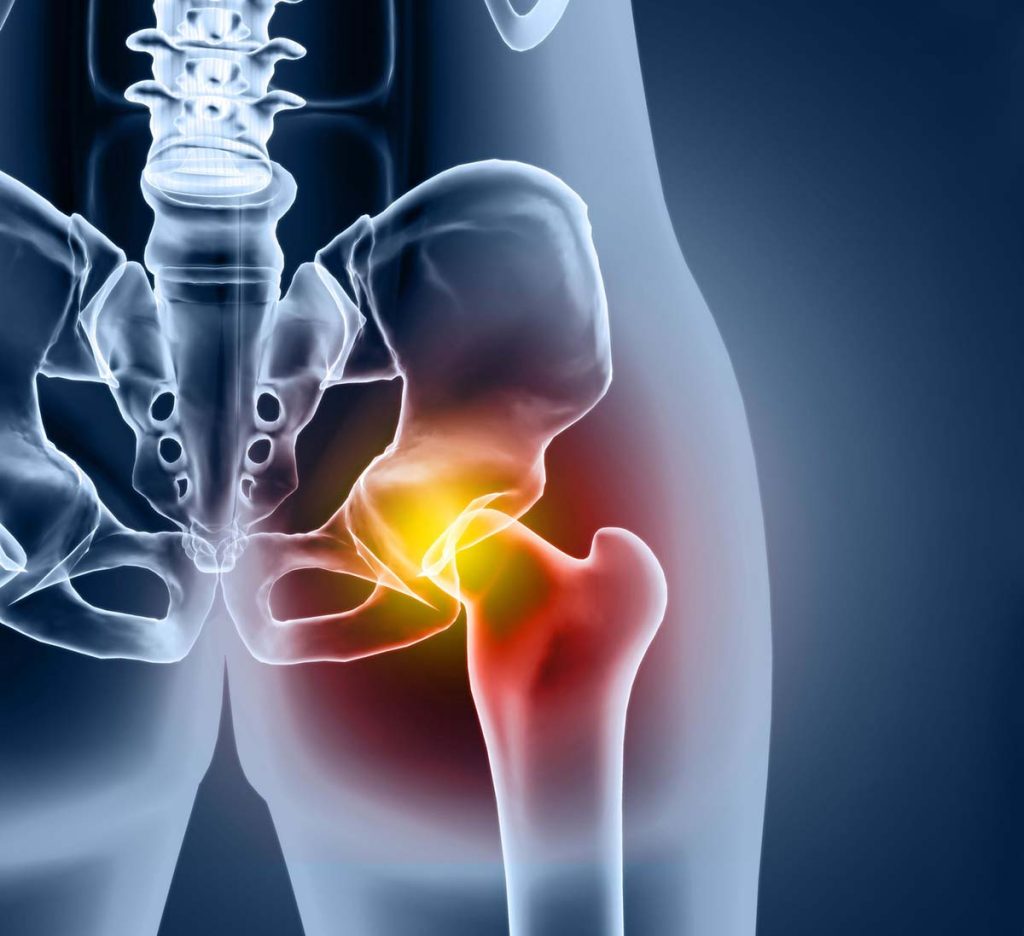Contact Apicella & Schlesinger Attorneys at Law if you have suffered a severe hip injury due to another driver’s negligence.
When a person is involved in an auto accident, the force placed upon the body is tremendous. No matter how strong a person is, the human body is not designed to handle the sudden impact of a crash.
Almost any part of the body is susceptible to severe injury, depending on where a victim is hit and the amount of force generated by the impact. However, injuries to the lower half of the body account for nearly one-third of all car accident injuries.
Hip injuries are common in car accidents. Hip pain is typical but may not be apparent right away. People often dismiss their pain as soreness after the accident, only to worsen days or weeks later. But severe hip injuries require immediate medical attention.

Types of Car Accident Hip Injuries
Injuries following an auto accident should be taken seriously, especially those related to the hip. Denying or delaying treatment can lead to future problems, such as osteoporosis. If you or someone you love has suffered a hip injury due to another driver’s negligence, seeking medical care and legal counsel should be a top priority.
- Dislocated Hip – Car accident-related hip dislocations are generally caused by the knee being slammed into the dashboard. When a victim experiences a dislocation injury, they will know it immediately because their hip will feel out of place. Standing and walking will be very difficult and painful. If there’s an associated fracture, surgery is often required.
- Hip Fracture – The hip comprises the head of the femur and pelvic acetabulum. The force of the impact in a crash can fracture either or both bones. Screws, plates, rods, or other metal replacement components can be used to repair a fracture. Non-surgical treatment alternatives, such as pain medications, physical therapy, and rehabilitation, may be an option if the fracture isn’t severe.
- Strain or Sprain – Hip muscle strains or ligament sprains are typical after an accident. While they are far less severe than dislocation or fracture, they still require medical attention. Pain, swelling, inflammation, and decreased range of motion are all common symptoms that, when left untreated, can lead to reduced mobility. Treatment for strains and sprains often includes anti-inflammatories, physical therapy, and steroid medications.
Depending on the severity of your hip injury, your doctor may prescribe medication to reduce pain and inflammation. Surgery may be required if your hip injury is extensive, such as an open hip fracture, or if the injury leads to severe instability. Physical therapy may also prevent the joint from becoming immobile while healing.
Compensation for a Severe Hip Injury
Hip problems from auto accidents can cause severe mobility issues for victims, depending upon their job and activity level. If your job requires you to use heavy machinery or walk a lot in a warehouse, a significant hip injury will prevent you from doing your job in the weeks, maybe months, to come. Lost wages, combined with medical expenses, begin to add up.
No two car accidents or hip injuries are the same. Therefore, the amount of compensation you need depends on various factors. At Apicella & Schlesinger Attorneys at Law, we will help determine your economic and non-economic damages. If the other driver is responsible for your injuries, you may be able to recover compensation that includes:
- Medical expenses
- Future medical costs
- Lost earnings – present and future
- Loss of earning capacity – current and future
- Pain and suffering
Free Consultation
Are you ready to protect your rights today? If you’ve been injured, don’t speak with insurance companies without representation. We are committed to representing our clients with the highest level of professionalism and walking you through every step of your case.
